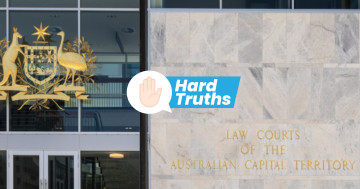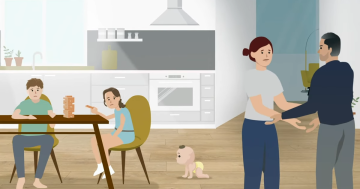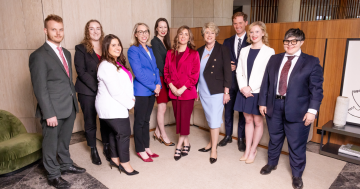
The Federal Budget will simplify family law, but more could be done. Photo: File.
The latest Federal Budget took essential steps towards making family law safer and simpler for parents and children but missed one big opportunity, according to a leading practitioner.
DDCS Lawyers partner Di Simpson said several funding pledges showed the Albanese Government’s support for key initiatives designed to help vulnerable parties in family law matters but did little to address the “legal aid funding crisis”.
Investment included $68.6 million over two years to assist Family Violence Prevention Legal Services to provide Aboriginal and Torres Strait Islander victim-survivors of family violence with culturally safe services.
Current funding was due to expire at the end of this financial year.
“Women and children in very remote communities with high Indigenous populations are highly vulnerable to incidents of family violence, both in terms of services on offer and their experiences of engaging with those services,” she said.
“The Law Council conducted a comprehensive review of where services were failing for people around the country and found Indigenous legal support was woefully underfunded.
“The high risk of being misidentified as the perpetrator when you’re in fact the victim has led to mistrust and reluctance to engage with law enforcement.”
Following its successful pilot, $33.1 million has been allocated to a nationwide rollout of the Family Law Priority Property Pools program for property pools less than $500,000 (PPP500).
This scheme refers eligible matters to a more responsive pathway with support from legal aid and mediators.
Over $13 million will extend the lawyer-assisted family law property mediation program, so state and territory legal aid commissions can help mediate small property disputes.
Ms Simpson said both these expansions had been well received by family lawyers who participated in these programs.
“These programs recognise that not all cases coming before the court are the same,” she said.
“Smaller pool cases can still be complex and difficult to resolve, but creating a way for these cases to be mediated at an earlier point and diverted from the slow, resource heavy, trial pathway is important.”

DDCS Lawyers partner Di Simpson said the Budget did little to address the legal aid funding crisis. Photo: DDCS.
More than $18 million has been allocated to improve women’s and children’s safety in matters under the Hague Convention on the Civil Aspects of International Child Abduction.
The funding helped level the playing field of legal representation for eligible respondent parents and early dispute resolution and improved the Attorney-General’s Department in obtaining evidence in Hague Convention cases and making it available to the courts.
“They’re not open slather/best interest cases; there are very particular rules around Hague cases,” she said.
“It’s about deciding which is the correct forum (or country) for a child dispute to be heard.”
The funding couples with a proposed reform to the Family Law Act to grant the court discretion to appoint independent children’s lawyers in Hague cases, rather than in exceptional cases only.
Additional funding will assist the Attorney-General’s Department and Office of Parliamentary Counsel to increase legislative drafting capacity.
Ms Simpson said this might flag further reform of the Family Law Act, to cover property and financial matters but those reforms would need to be thoughtfully balanced against the pressure they might place on the legal system.
“Of the recommendations from the 2019 Australian Law Reform Commission that the government will work with, they’ll likely look at how the court would take into account family violence in property division cases,” she said.
“As it stands, if you can establish you’ve experienced family violence or other conduct which has adversely impacted your ability to contribute to the property pool, the court can already make an adjustment in your favour. However, those sorts of cases are currently highly contested, hard to run and harder to settle and the adjustments might only be five to 10 per cent.
“Reform could make it easier, but that’s a big change requiring careful consideration and review. There are concerns about ‘opening the floodgates’ on the court system if it’s not properly balanced.”
Ms Simpson noted that family violence is alleged in 80 per cent of cases before the courts.
While the Budget was largely positively received by many family law practitioners, the Law Council of Australia, Australia’s peak body for lawyers, expressed concern about its failure to address the continuing legal aid funding crisis.
“Without access to legal aid funding many parents are compelled to act for themselves in family law matters, adding pressure to the court system,” Ms Simpson said.
“It can take more time to manage and support matters where people do not have lawyers, given their unfamiliarity with the system, the rules and the processes required.
“This may lead to adverse outcomes for children, especially where there are violence allegations and clear power imbalances between the parties.”





















